GRISELDA (2024) – Miniseries
Fleeing from Medellín to Miami, Griselda Blanco creates one of the most ruthless cartels in history.
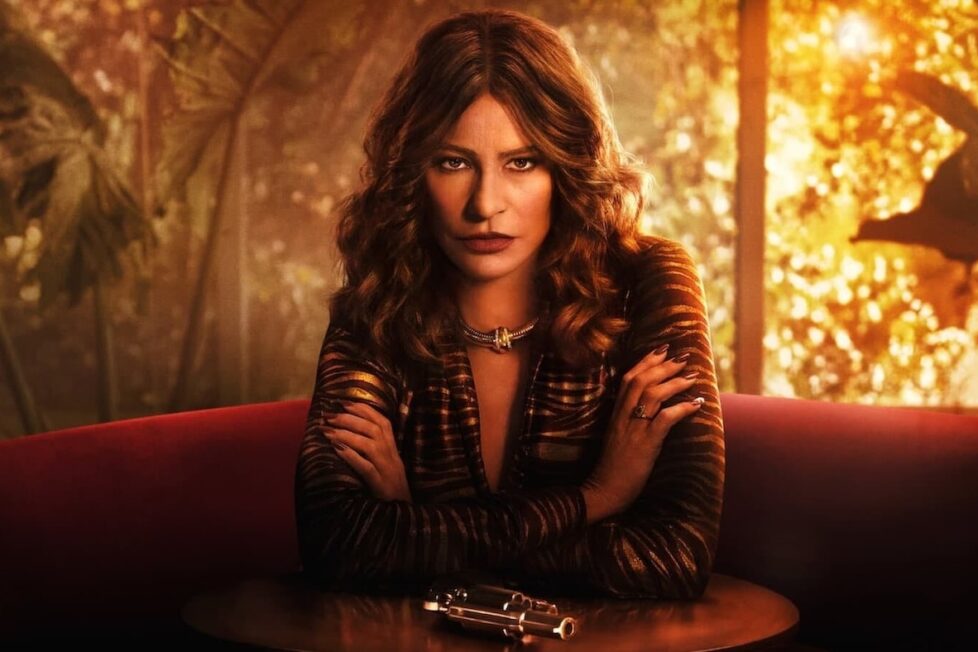
Fleeing from Medellín to Miami, Griselda Blanco creates one of the most ruthless cartels in history.


In organized crime stories, women are wives, daughters, molls, prostitutes, and little else. When ambitious criminals incorporate around the table, women aren’t just invisible… it’s as though they don’t even exist in a world where men birth and raise themselves. Men retain their position in the Big Chair, a grubby symbol of male fantasies of unchecked power and violence decked out in sharp suits and draped in bling.
But times change, as they do in both art and entertainment and the world from which both spring. While female mob kingpins remain rare in the upper pyramid of organized crime, occasionally one rises to the top, for example in Europe, where Maria Licciardi, a leader within the Camorra, one of Italy’s most powerful mafias, is still said to reign even as she serves a life sentence in solitary confinement.
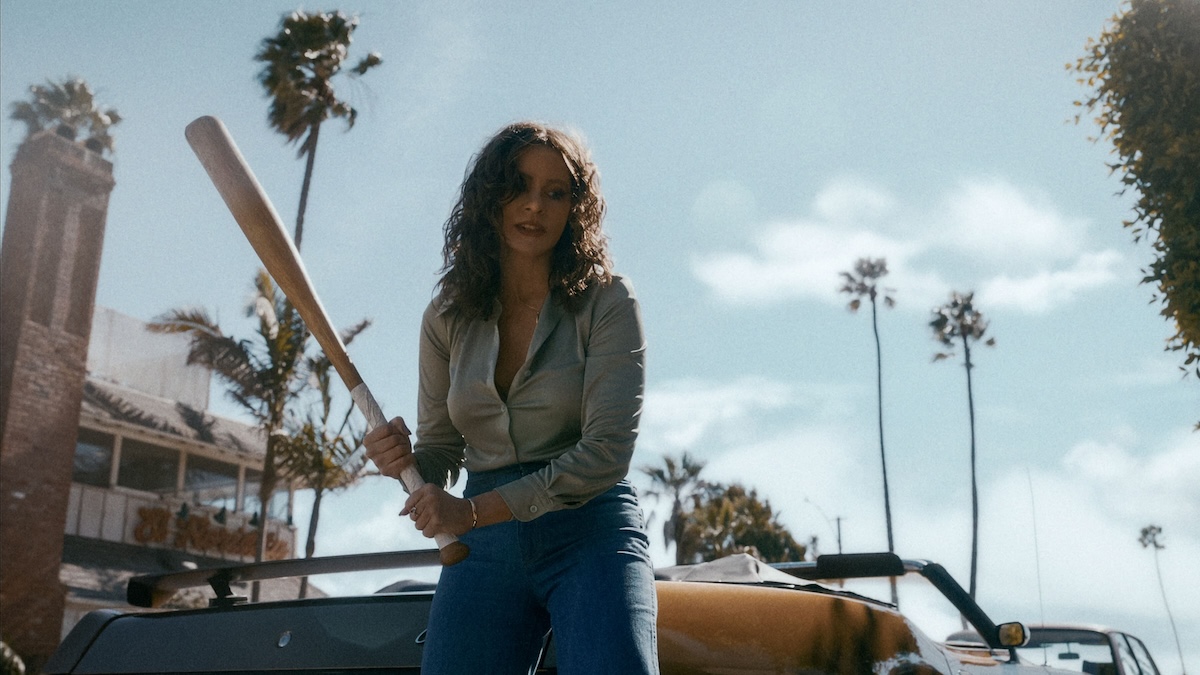
Of course, film and TV, unbound from the rules of physics, history, non-fiction, and journalism, have a license to alter reality with sometimes criminal impunity. Since the start of this millennium, we’ve been treated to occasional, and fanciful, film portraits of fictional female mobsters, among them the Swedish series Gåsmamman / Mother Goose (2015-2022) which spun an entertaining, absorbing yarn about an ordinary middle-class mom whose husband’s criminal empire falls into her lap with dire results.
Another real-life female crime boss, Griselda Blanco Restrepo (1943-2012), one of the most powerful and vicious crime bosses of the 1970s and 1980s, has drawn particular attention. Her bloody reign was loosely adapted into the TV movie Cocaine Godmother (2017), starring Catherine Zeta-Jones, which bombed on arrival, in part, apparently, due to the Welsh actress’s poor performance.
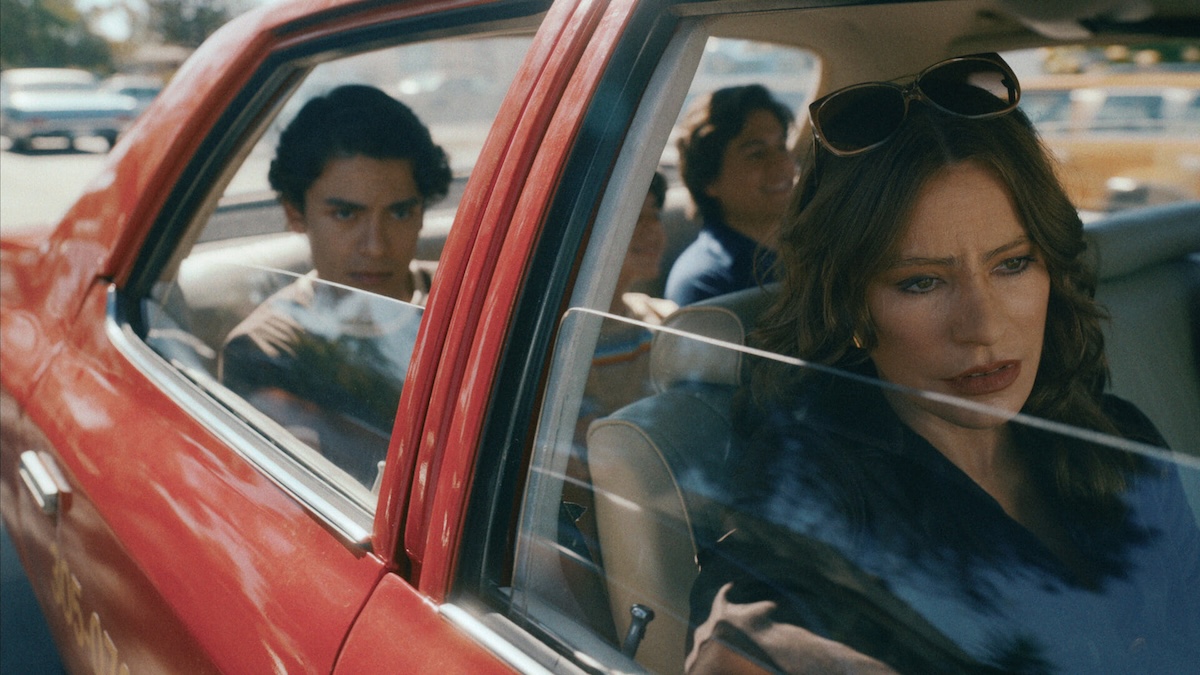
But one bad movie needn’t keep Blanco from remaining a fascinating topic for fictional crime. Netflix, in association with Latin World Entertainment, has recently given her life another go with Griselda, a six-part miniseries.
As often happens, the crueller edges of Blanco’s life are softened up for mainstream consumption. The series opens in Medellin, Colombia, in the 1970s, when drug cartel lords, such as Pablo Escobar, were building their empires. Griselda (Sophia Vergara), the gorgeous wife of one of the cartel’s major honchos, staggers home one night, bleeding from a bullet wound to her abdomen. She bundles her three young sons—Uber (José Velázquez), Dixon (Orlando Pineda), and Ozzy (Martín Fajardo)—off to Miami, explaining to the boys that their father has gone away on a business trip. Being young and trusting their mother’s authoritarian rule, they’re disinclined to question her.
Once they arrive in Miami, the plot follows a pattern that fans of Scarface (1982) will recognise. Griselda has also smuggled along a nearly pure kilo of cocaine—an easier thing to do back then, when security was relatively lax and the drug had yet to flood the marketplace. Determined to carry on her life of crime, her first attempt to break into the market is blocked by Miami’s chief coke dealers. They see her as just a bimbo stepping on their turf. They add injury to insult by stealing her coke, a dumb thing to do to a woman, who, according to history, committed her first murder when she was 11.
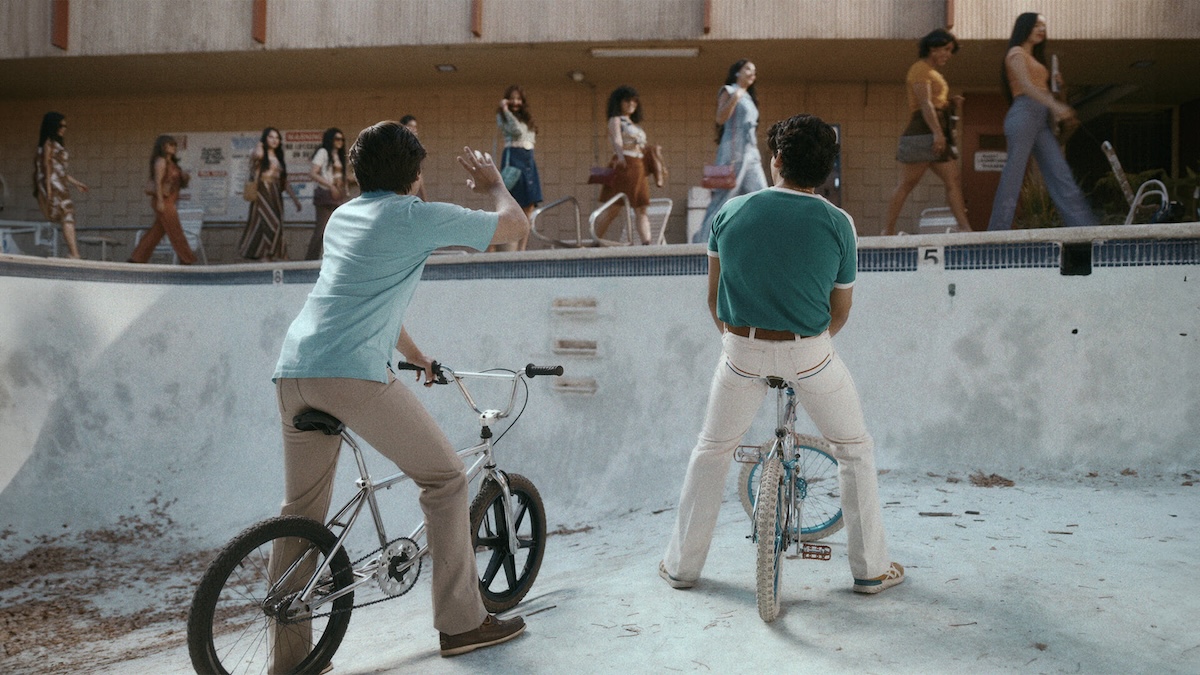
Griselda retaliates with a mixture of cunning and violence. She quickly finds a workaround for both the local and Colombian drug lords into a whole new market—wealthy, white Floridians who have a lot more money to spend on her superior product. Meanwhile, she establishes her own pipeline for smuggling drugs into the Miami area, employing young Colombian women as mules and designing a special brassiere lined with compartments for hiding contraband.
Jealous and enraged at being upstaged by a woman and greedy for more, the gangs push back. But no one pushes Griselda Blanco around, as they discover to their misfortune. Griselda holds up in her compound from where she unleashes a hurricane of violence while taking her place at the top of the pyramid as the “Cocaine Godmother.” Meanwhile, as she gets high on her own supply and delusions of grandeur, her raging ambition leads to her doom.
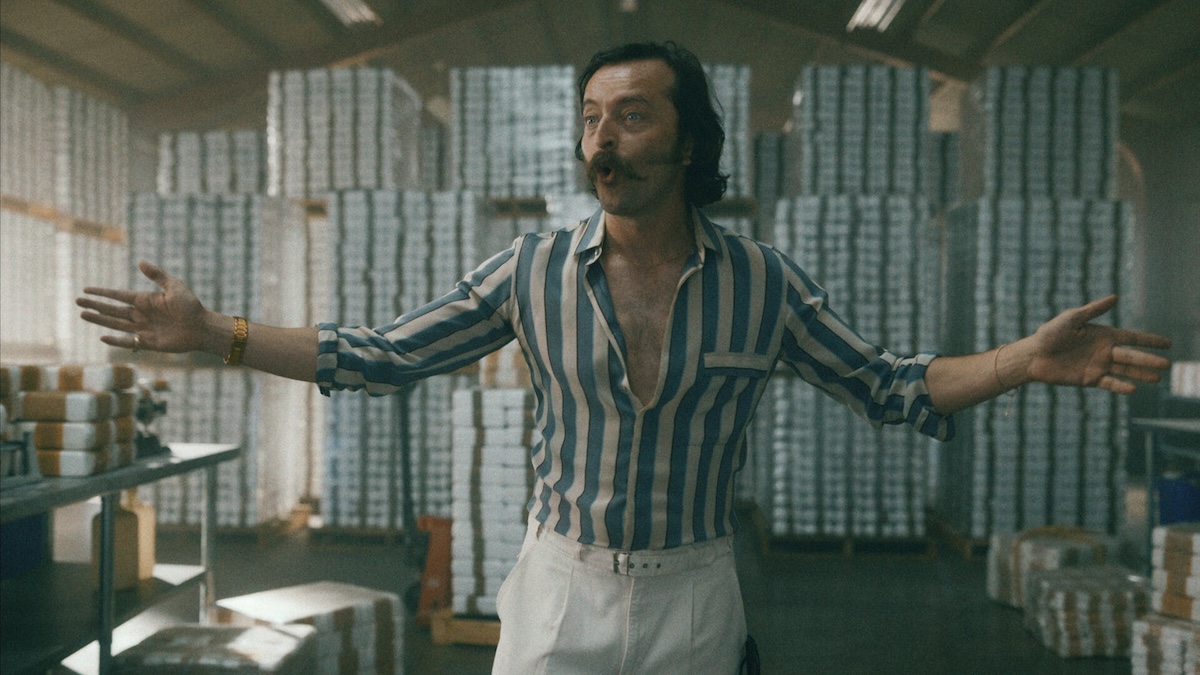
To provide a necessary, and sympathetic, moral point of view, the series introduces a young Miami police homicide inspector, June Hawkins (Juliana Aidén Martinez) into the narrative. While investigating the rapidly increasing number of drug-related homicides, she discovers a common denominator in Griselda.
Like Griselda, June’s a woman in a male world whose efforts are insultingly brushed aside by her sexist, and incompetent, colleagues. Lucky for her, and the rest of us, law enforcement’s glass ceiling is more porous for women. Raúl Diaz (Gabriel Sloyer), a detective from a task force made up of Miami police and the DEA, recognises June’s talent and her grasp of the situation. He brings her into the game, providing both a formidable opponent for Griselda and a good guy to root for in the struggle against the drug wars that swamped South Florida throughout the 1980s.
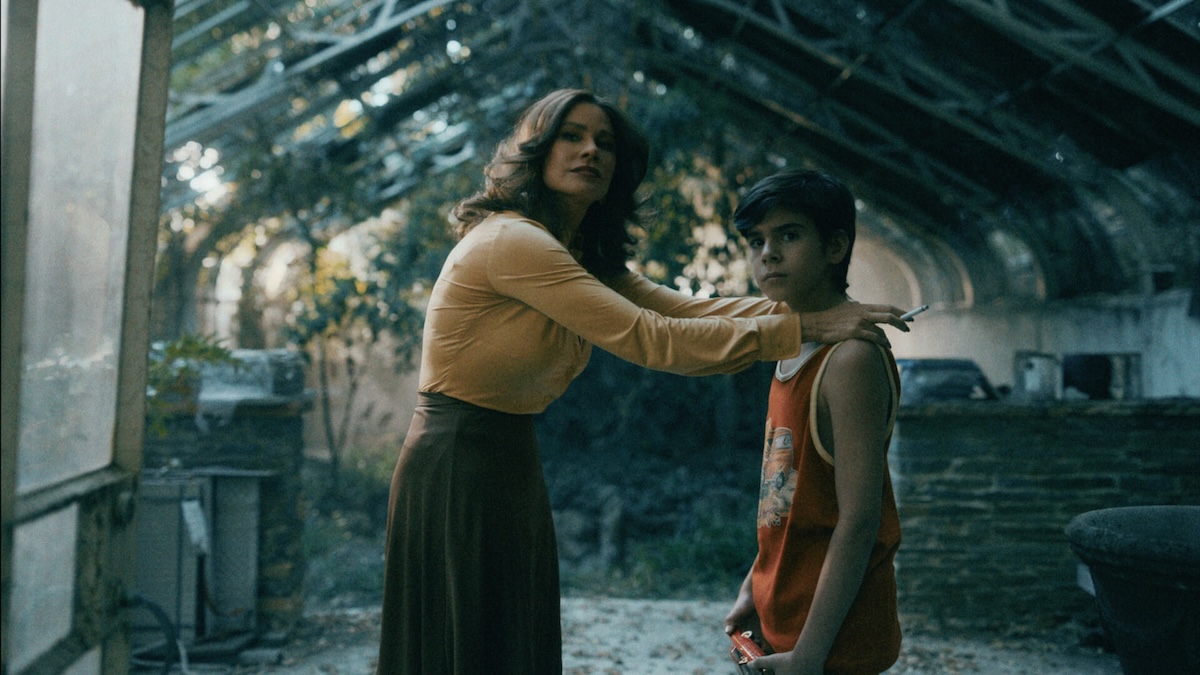
This being “factual fiction”, Griselda’s version of events should be taken with a line of salt. Except for Ms Blanco and her sons, most all the names have been changed, even Pablo Escobar’s. Not surprisingly, the real Griselda Blanco had even less conscience: her criminal career started at 11 when she kidnapped and murdered a little boy. Among her other aliases was “The Black Widow”, a sobriquet she earned for murdering all three of her husbands. Of her four sons, three met a similar end. She was, it’s said, the inventor of the drive-by motorcycle hit (another detail left out here). Despite her heartlessness, the series has her ludicrously styling herself as a feminist icon who broke the cartel’s glass ceiling. Miraculously, she outlasted most of her enemies before she was murdered in 2012 at age 69.
Factual objections aside, Griselda glides along like a powerboat; a slick, stylish, and entertaining piece of genre moviemaking that I think is superior to the aforementioned Scarface (which covered the same territory). Under supervision by a team of showrunners led by Doug Biro, all six episodes skim along under the direction of Andrés Baiz. Cinematographer Armando Salas provides bright postcard views of the Miami of that time with the action smoothly linked by a team of three editors.
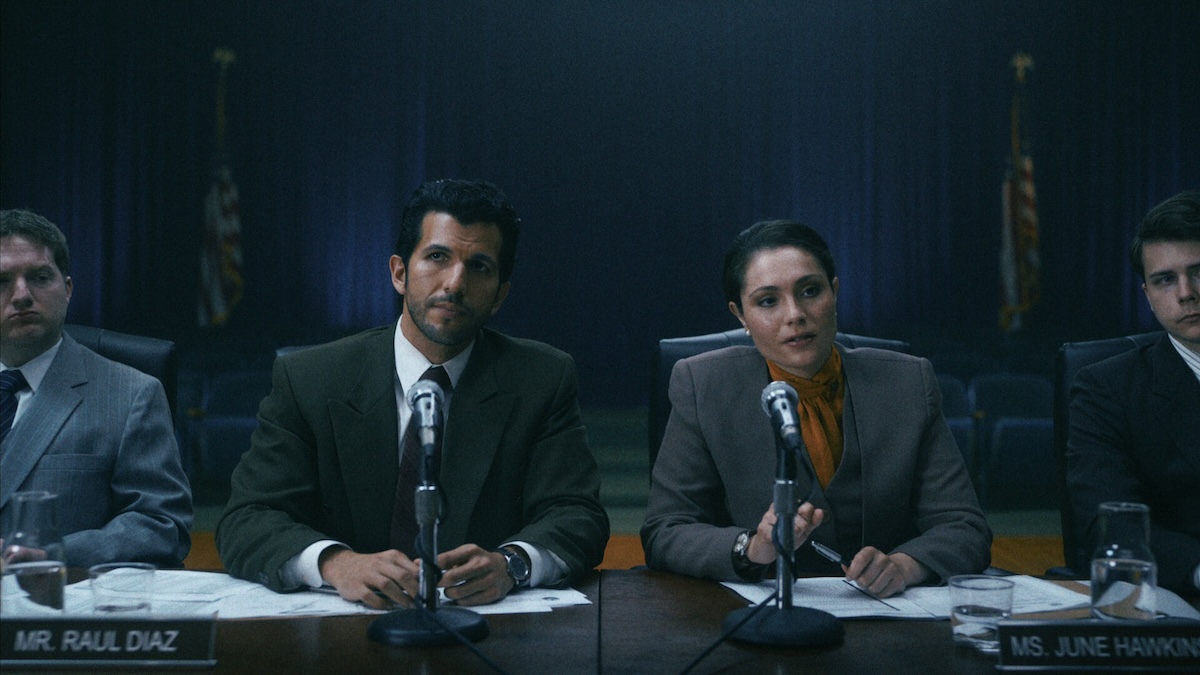
The violence of the material is inescapable and often gruesome (including the aftermath of a mass decapitation), yet the series shows some admirable restraint, avoiding the crude bludgeoning of the John Wick series and Paramount+’s reboot of Sexy Beast (2000). It doesn’t wear us down with brutality but focuses on the complex intrigue and roaring passions involved in Griselda’s rise and fall.
The cast is excellent throughout. Alberto Guerra provides excellent support as Griselda’s third husband, Darío Sepúlveda, a hitman with just a smidge more conscience; José Zúñiga as Amilcar, one of her chief rivals, is fantastic; and so is Christian Tappan as Arturo, a trusted aide whom Griselda sacrifices on the altar of her ambition.
This is the first time I’ve seen Sofia Vergara (Modern Family), and I found her to be a knockout. She plays Griselda as an inexhaustible storm of colour and fury, as potent as Joan Crawford at her peak. She ably captures Blanco’s stormy temperament and her cold steely core, along with the rhetorical bluster she employs to keep her gang together. She well-modulates her performance in sharp contrast to Al Pacino’s exhausted thrashing as Tony Montana in Scarface. Pablo Escobar once remarked that the only “man who ever scared me was a woman named Griselda Blanco.” Tony Montana would’ve been a mere speck of blood on Griselda’s high-heeled shoes.
USA | 2024 | 6 EPISODES • 330 MINUTES | 16:9 HD | COLOUR | ENGLISH • SPANISH

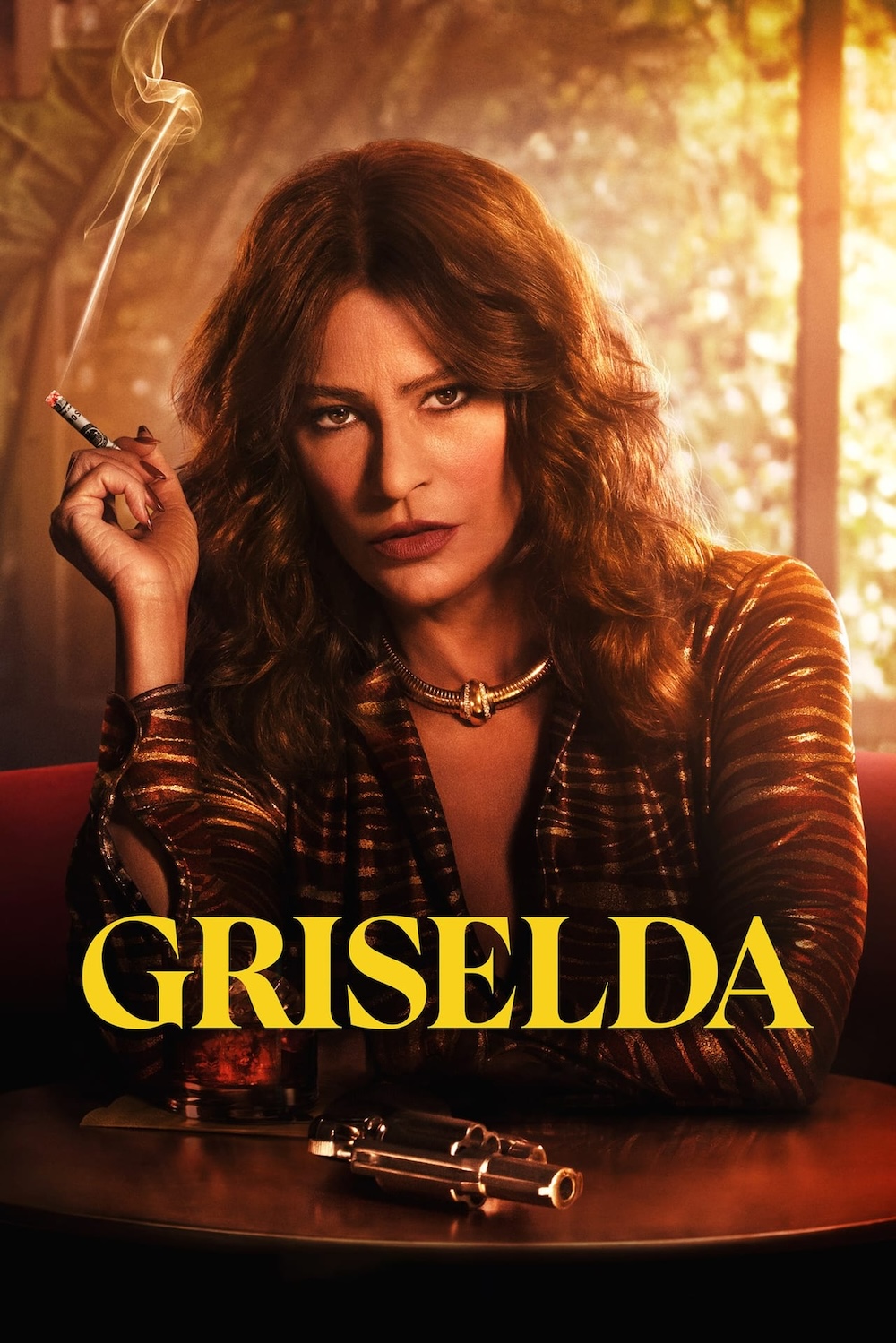
writers: Ingrid Escajeda, Doug Miro, Eric Newman, Carlo Bernard, Brenna Kouf, Cassie Pappas, Turi Meyer, Alfredo Septién, Gina Lucita Monreal & Giovanni Sarquis.
director: Andrés Baiz.
starring: Sofia Vergara, Alberto Guerra, Martin Rodriguez, Juliana Aidén Martinez, Vanessa Ferlito & Christian Tappan.
